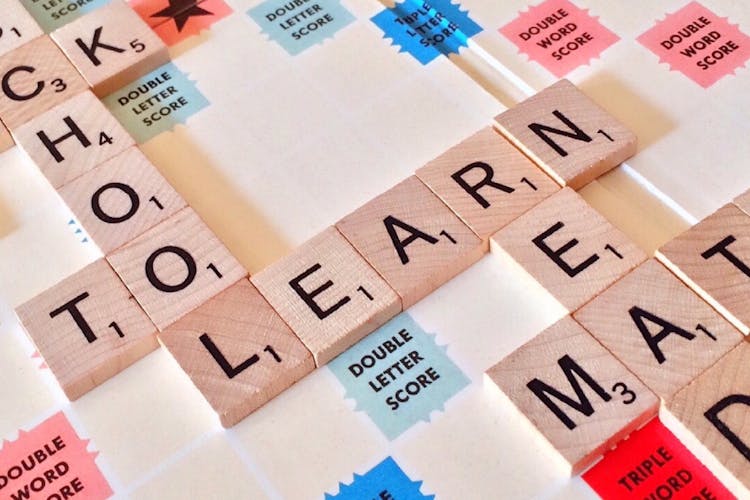
Ask Someone in Earnest NYT: Decoding Crossword Clues in the New York Times
Is it your hobby doing crossword puzzles or are you a person who wants to improve his proficiency in solving crossword puzzles?
If so, then it is possible that you have heard about the Ask Someone in Earnest NYT (New York Times Crossword) which has really difficult clues and quite amusing wordplay.
Today, we embark on a journey into the depths of crossword puzzles, with a specific focus on understanding and decoding one of its intriguing clues: The exact Price to Pay to Talk to Someone Serious about the New York Times.
Welcome back to our comparison of the history, approaches, and values of crossword solving in developing cognition as we attempt to solve this enigmatic clue.
Table of Contents
- 1 The Crossword Puzzle of the New York Times: Its Heritage
- 2 Why “Ask Someone in Earnest NYT” is So Popular
- 3 Understanding Crossword Clues: Species and Methods
- 4 Wordplay and Puns
- 5 An Explanation of the NYT Crossword Puzzle – “Ask Someone in Earnest NYT”
- 6 Solutions to change the “Ask Someone in Earnest”
- 7 Typical Solutions
- 8 Exploring Themes
- 9 Cognitive Benefits of Crossword Puzzles like “Ask Someone in Earnest NYT”
- 10 Crossword Tips and Facts
- 11 Some Fun Facts and Trivia about the Ask Someone in Earnest NYT Crossword
- 12 Conclusion
- 13 FAQs
The Crossword Puzzle of the New York Times: Its Heritage
History and Evolution
The New York Times Crossword (Ask Someone in Earnest NYT Crossword) is one of the most famous puzzles that started a very long time ago, exactly on February 15, 1942. Formerly, it was a weekly section but as it garnered the interest of the readers, it was read daily.
Thus, reflecting the changes in language, culture, and the approach employed to solve such a puzzle over the last few decades, the presented puzzle has changed significantly as well.
Why “Ask Someone in Earnest NYT” is So Popular
Why does the “Ask Someone in Earnest NYT” remain to be a favorite among readers? The beauty of it is that the clues are complex to make people of all ages solve it yet fun at the same time.
The reasoning begins with learners and builds up to the professional or the advanced user; it provides the benefit of stimulating the brain and offering a feeling of achievement in solving it.
Understanding Crossword Clues: Species and Methods
Challenges can be made on the basis of knowledge, intelligence, and creativity and this is well illustrated in crossword clues. They are of different types, every one of which has a different strategy that was used to establish it.
Types of Clues
- Direct Definitions: Indications that would immediately lead to the answer.
- Wordplay: They include the clues that require the use of language plays where a single thing is represented in a different form; including anagrams, homophones, and puns.
- Cryptic Clues: These indicate Superior clues that are usually encoded in wordplay but harbor a second meaning that was not intended.
Wordplay and Puns
Pivotal to most crossword puzzles are those that involve using clues that have forms of words in them. It often entails something related to language as a hint or a clue that leads to the solution to the problem in a deceptive way.
An Explanation of the NYT Crossword Puzzle – “Ask Someone in Earnest NYT”
Analyzing the Clue
In decoding the answer, one needs to analyze each word and find out the possible meanings of individual and connected words in the clue – ask someone, earnestly.
Synonyms for “Ask”
In relation to the crossword puzzle, words like inquire, request, plead, beseech,, and urge are as critical in eliminating wrong possibilities of the answers.
Understanding “Earnest”
Earnest’ is a qualitative term that conveys the meaning of serious or sincere. Adding this on with the synonyms for the word ask, the solvers shall be directed to the answer required.
Solutions to change the “Ask Someone in Earnest”
Approach and Techniques
- Synonym Exploration: This can be done by using a number of related terms each of which contains some of the words used above.
- Contextual Analysis: Employ the other features of Locating, such as the clues from the surroundings and the layout and assembly of the actual puzzle to deduce the answer.
- Brainstorming: Practice the use of lists of multiple possible answers in order to find the best answer to be employed in the questions.
By utilizing these findings, this paper will establish an understanding of common responses and thematic areas that are often encountered in earnest clues.
Typical Solutions
The answers to serious signals always contain elements such as plead, beg, implore, urge, and entreat in since they characterize the eagerness of the speaker to get a response from the recipient.
Exploring Themes
Serious hints often involve rhetoric such as the desire or appeal to the emotions, or a call for something with considerable urgency so that one has to solve a hidden message within the confines of the puzzle.
Cognitive Benefits of Crossword Puzzles like “Ask Someone in Earnest NYT”
Enhanced Cognitive Functions
Further, interacting with crossword puzzles has great benefits on other aspects of cognition, these include;
There is a benefit that comes with engaging with crossword puzzles this is the fact that it improves the memory of any person who engages in solving the crossword puzzle and improves the memory as well as the ability to focus on a given task.
Vocabulary Expansion
Solving crossword puzzles plays a huge part in increasing the word recognition of the solver as they are constantly introduced to new words through context.
Crossword Tips and Facts
Practice Makes Perfect
Puzzle-solving skills are improved every time the exercises are practiced. Daily practice with crosswords helps one introduce himself/her with clue patterns, and feel prepared to handle deeper levels of crosswords.
Learning from Experts
Getting advice and recommendations from other solvers is beneficial when determining more efficient ways to go through the process.
Some Fun Facts and Trivia about the Ask Someone in Earnest NYT Crossword
Historical Titbits
- The crossword’s history began in the New York World in 1913, making the NY Times crossword to be slightly younger than 30 years.
- The one published on Sundays is the largest and is generally a very hard puzzle with intricate subjects and references.
Notable Contributors and Solvers
- “play crossword as much as he speaks and writes”; erstwhile president of the United States of America, Bill Clinton himself is a crossword freak who like McCain is not ashamed to be seen solving crossword puzzles; he has even provided a crossword puzzle to the New York Times.
- Not every puzzle admirer is an amateur or a professional player of the puzzles presented, and not every champion is an expert in all existing types of puzzles.
Conclusion
As you proceed to solve the crossword puzzles with tips on how to solve clues such as Ask Someone in Earnest NYT, may you be enthusiastic to solve as many puzzles as possible. Bear in mind that with every clue, you are given a chance to work your brain muscles, dig deep into the world of words, and ponder over logic.
Whether it is for a casual puzzle or for professional solving, NYT Crossword is still that timeless puzzle that has and continues to enthrall crossword enthusiasts all over the globe. Happy puzzling!
FAQs
What type of puzzle is this that has the name crossword?
A crossword is a word game, where, having certain hints, words should be placed in the grid so that they intersect.
How do you solve a crossword puzzle?
To complete a crossword puzzle, follow the directions and maintain focus on the clues by categorizing them by kind, involving definition, wordplay, and so on, while filling the puzzle.
Why are crossword puzzles popular?
Another reason why people like crossword puzzles is because they stimulate the brain, develop the word bank and leave the satisfaction of the completion of the task in the hands of the player.
What are common types of crossword clues?
There are usually three types of crossword clues: the clues that offer the definition of the word, the clues containing the reference to the words that share the array of letters as the target word, and the cryptic clues that are based on the wordplay and hidden meaning.
What can I do to increase my crossword puzzle-solving skills?
There must be an emphasis on frequency of practice, observation and guidance from other good players, and further mastering of techniques (such as; using synonyms and mapping the context).





